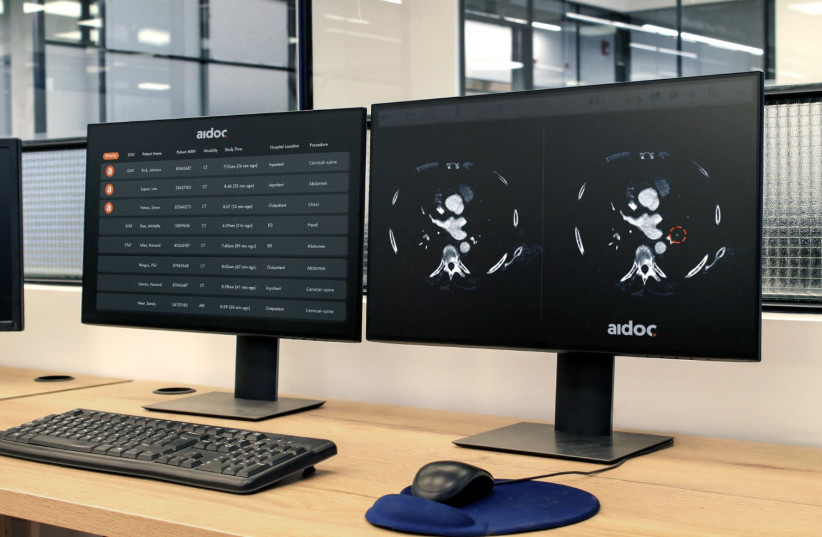Computerized tomography (CT) scans in hospitals around the country, and in many parts of the world, have been canceled or postponed because of a lack of iodinated contrast dye.
The dye is injected into adult and pediatric patients in most CT procedures to better visualize internal organs. Typically injected into patients’ veins, it provides higher contrast than imaging procedures such as CT scans without dye.
CT scans can be a life-or-death technology to diagnose serious conditions. They can reveal, for example, the location of a clot when someone is having a stroke. They are used to examine accident victims and reveal internal injuries and tells cardiologists placing stents to open clogged arteries where the supporting stent should go.
Contrast dyes also monitor the progress of malignant tumors. Across specialties and hospitals of all sizes, they are a life-saving medical item used millions of times every week in developed countries.
The shortage is due to a lockdown imposed on March 27 in Shanghai to quell a COVID-19 outbreak as part of China’s “zero-COVID” strategy. A General Electric (GE) Healthcare plant in Shanghai that makes the dye temporarily closed because of the lockdown.
The Health Ministry in Jerusalem has issued no statement about the CT scan problem, but when The Jerusalem Post filed a query, it conceded that it was “aware of the temporary lack of contrast agents, following the cessation of marketing of the Omnipaque 300 preparation by the company.” The Health Ministry “has approved a special delivery to enable the availability of the materials in hospitals and will approve additional orders as needed,” a ministry spokeswoman said.
There was no explanation from the ministry as to why the world depends on one source of contrast medium instead of ensuring that it is manufactured in Israel or in other places abroad.

GE working at full capacity
GE Healthcare recently said its factory was now operating at full capacity, and “we expect some ongoing reduced availability of iodinated contrast media as we continue to re-stabilize global supply.” GE is accelerating deliveries by shipping by air instead of by boat, from both its Shanghai plant as well as a plant in Cork, Ireland, to increase supplies around the world, it said. Nevertheless, according to foreign reports, health systems do not anticipate immediate relief, and the shortage could last into the summer.
The Shanghai factory is a major supplier of the dye for US health systems, with about half of American hospitals and imaging centers using the GE product. What percentage of Israeli hospitals use it has not been announced.
“Our priority is delivering for our customers and their patients, and we are working around the clock to expand capacity of our iodinated contrast media products,” GE Healthcare said. “After having to close our Shanghai manufacturing facility for several weeks due to local COVID policies, we have been able to reopen and are utilizing our other global plants wherever we can.”
The US Food and Drug Administration has also reported shortages of the CT contrast dye. The American Hospital Association asked GE to give priority in distribution of the chemical to hospitals treating patients in the most urgent condition. It admitted that some US hospitals were squeezing more doses out of a vial of contrast fluid by repackaging the dye in smaller amounts.
Because of the shortage, hospital systems from New York to California told NBC News they have started deferring nonurgent medical procedures and are using alternative imaging and diagnostic tools that do not require the dye when appropriate, such as non-contrast CT, magnetic resonance imaging (MRI) or ultrasound, even though they are less suitable for diagnosing specific clinical problems.
"I’m confident that there will be some delayed diagnoses or misdiagnoses because we are using imaging techniques that are not optimized, not perfect.”
Dr. Matthew Davenport
“It’s very difficult to know what harms are going to occur from this, either from a delayed diagnosis or a misdiagnosis,” said Dr. Matthew Davenport, vice chairman of the American College of Radiology commission on quality and safety. “And I’m confident that there will be some delayed diagnoses or misdiagnoses because we are using imaging techniques that are not optimized, not perfect.”
An estimated 50 million scans with contrast are performed each year in the US, he said.
“Unfortunately, we don’t have the option to just give everybody contrast like we used to, so a bit of it is going to be the best of the bad option: Would I rather have no imaging or an imaging technique that’s not optimal?” Davenport told NBC.
